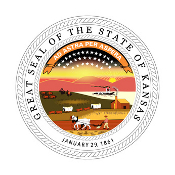
Before a motor vehicle can be registered in Kansas, it must be insured. Additionally, all motorists must be able to maintain financial responsibility throughout the vehicle’s period of registration. Failing to meet these requirements could result in fines or the loss of driving privileges. To avoid being convicted of driving while uninsured, residents should become familiar with state insurance requirements, and pursue coverage that can provide adequate protection.
The types of coverage that are mandatory in the Sunflower State are extensive, but motorists can still benefit from purchasing additional protection. Compulsory Kansas automobile insurance includes bodily injury liability, property damage liability, personal injury protection (PIP) and uninsured/underinsured motorist protection. Liability protection is used to pay for damages for which the policyholder may be responsible, and has minimum limits of 25/50/10. Personal injury protection, however, covers a range of medical expenses, rehabilitation costs, funeral expenses, lost wages and in-home assistance costs for the policyholder and their passengers.
Uninsured motorist protection covers a variety of damages and medical costs brought on by an accident involving an uninsured, underinsured or hit-and-run motorist. The additional benefit to this coverage is that it also covers the policyholder and their family members if they are struck by an automobile while on a bicycle, or while acting as pedestrians.
The Coverages Required in Kansas to legally drive represents the minimum that is allowable. The minimum policy thresholds may not be enough to pay for damages resulting from more severe accidents, potentially leaving motorists with high out-of-pocket expenses. The KS Department of Transportation recorded over 14,000 traffic accidents in 2008 that resulted in injury, and an additional 50,000 accidents that resulted in property damage only. Bodily injuries can easily exceed the 25/50 minimum limits, especially in incidents involving more than one injured persons.
Buying a policy with a higher liability and PIP threshold can help drivers avoid costly repairs or medical bills after an accident. Often higher liability limits can be increased for only a few extra premium dollars, and is frequently recommended by insurers. Additional comprehensive and collision coverage may also be beneficial for many motorists. This additional protection covers damage done to the policyholder’s own vehicle, and is frequently required when purchasing a vehicle through a lender.
By law motorists must maintain an automobile insurance policy while a vehicle is registered in Kansas, but purchasing coverage that also provides an adequate level of protection can also help motorists avoid financial ruin after an accident. Vehicle coverage is designed to help drivers pay for damages and medical costs, and without this protection a motorist may be left with costly medical and repair bills.
Source: http://www.onlineautoinsurance.com/kansas/